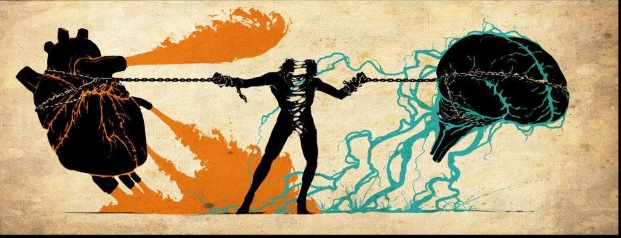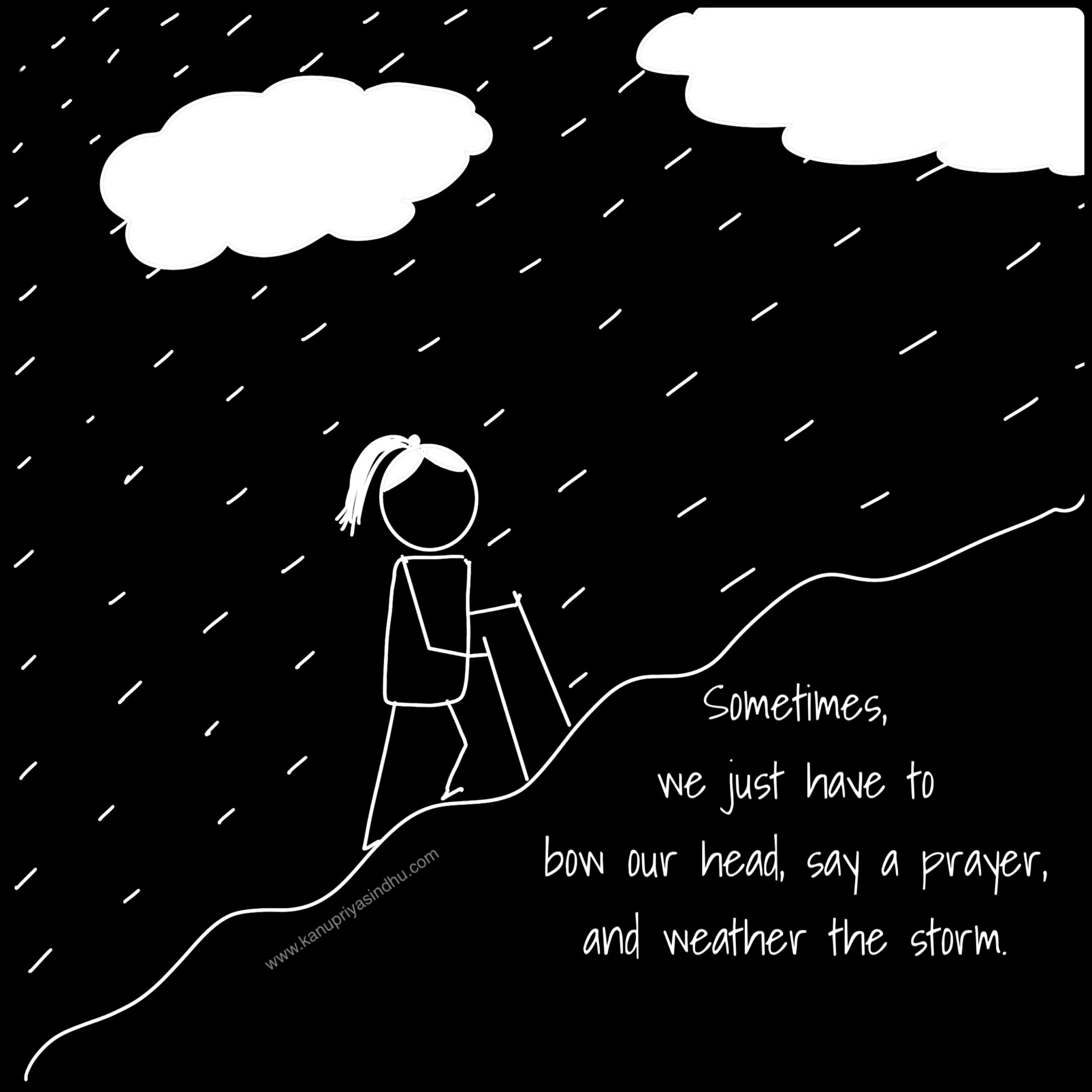Think beyond emotions. But why?
Think beyond emotions. I have heard this often. And I wondered why?
If it wouldn’t have been emotions, I wouldn’t have been me.
If it wouldn’t have been emotions, I wouldn’t have been with you.
There was a time in my life when I used to counter this statement (which is generally thrown at you more like an allegation) with proofs about my logical side of the brain, with pieces of evidence about my rational personality but now I just say –
“Wish more people in this world would have started their conversation with ‘I feel‘ as against, ‘I think‘.“
And this is not just for personal life, I stand by it in my professional life too. I am a marketer by profession and a major part of my work involves product and marketing. Now, need I say more about the importance of the right part of the brain in my work along with the left?
If it wouldn’t have been emotions, I wouldn’t have understood user pain points.
If it wouldn’t have been emotions, I wouldn’t have understood empathy.
If it wouldn’t have been emotions, I wouldn’t have been passionate, be it relationships or my work.
Emotional Intelligence is not just a buzzword and EQ is not a mere hype anymore. These are realities and core competencies after which many organizations are running these days.
Something that is so important at the leadership level, I wonder why it is not taught from the ground up? Why it is not a part of the school curriculum or parenting journals?
Why am I even writing a blog post on it, something that I don’t think need to be justified to the world? Well, it’s a conversation between my 7-year-old son and some folks recently that instigated me to write about it.
Something happened in a group of these 7-8-year-old kids and my son as well one of his friends started crying. There were few other grownups who were trying to pacify the boys to the best of their abilities. While I appreciated their concern but couldn’t help myself from noticing a few repeated sentences for the boys like –
“Don’t be so emotional, stop crying like girls”.
“Don’t be so emotional, these things happen”.
Something in me snapped. I totally understand their good intention but for a child whose mother is as rock strong as me, comments like “don’t cry like a girl” are nothing but meaningless. What do people even mean when they say – “don’t cry like girls”?
But the larger concern that I had was this repeated mention of “don’t be emotional”. I mean why? The boys were injured physically, to add to that they had been bullied, why can’t they cry? What’s so wrong about feeling bad on being cheated and bullied?
At a very young age, they are being told to shun out their feelings, at a very young age they are being rebuked for expressing their emotions. At a very young age, they are being told that emotions are for girls only and boys are supposed to be this never-feel, never-cry, never-empathize creatures!
I just so wish that right from the start we pay attention to the “feel” as much as the “think”.
Here’s to my boy, other boys, me, and others who listen to such comments often –
It’s perfectly fine to be emotional.
It’s perfectly fine to express emotions.
And it’s perfectly fine to experience negative emotions along with the positive ones.
What is not fine is to keep these emotions bottled up inside.
Feel, express and most importantly, learn to manage your emotions.
Cognition is important but what is more important is to understand and acknowledge the interlink between cognition and emotion.
Before I sign off, would leave you with one of my favorite videos by Susan David. If you like reading more about emotional agility, you will love this one.






